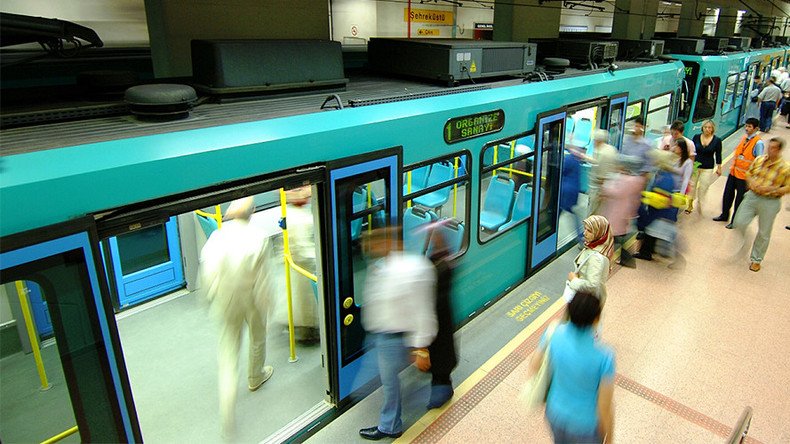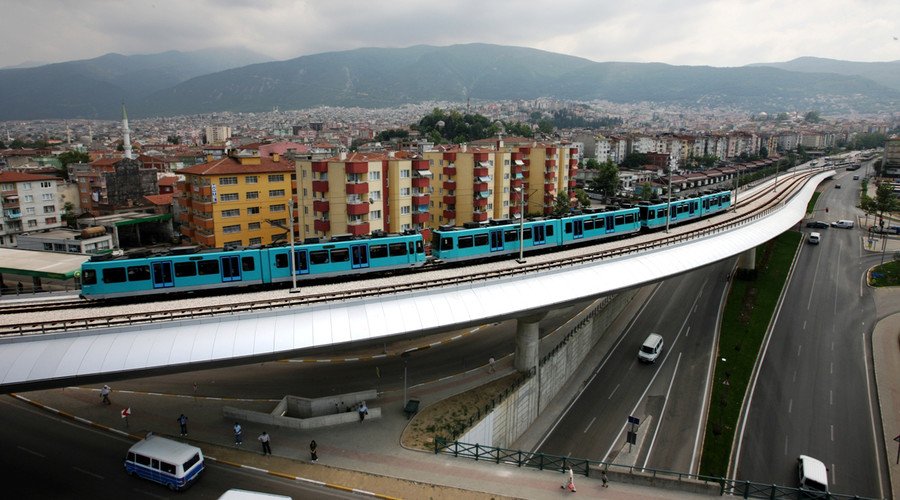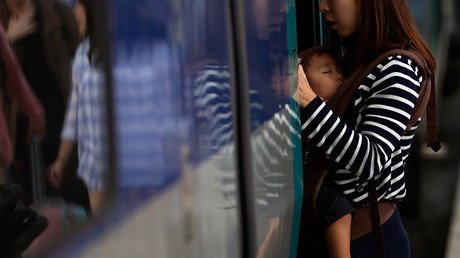Turkish city introduces female-only carriages, shrugs off criticism of ‘excluding women’

Starting from this month, women in the affluent Turkish city of Bursa will have priority boarding rights on designated inter-rail coaches. The innovation - mimicking those in Japan and Germany - has drawn anger from feminists and opposition politicians.
“Bursa has the best quality of life in the country,”boasted Mayor Recep Altepe, cited by the Hurriyet Daily News, following a town hall meeting where the measure was approved. “The issue is not that men and women can no longer be in the same coach – we have merely prioritized their comfort.”

Pre-empting criticism, Altepe, who heads Turkey’s fourth-biggest city with a population of over 2 million, said that introducing priority boarding for women on the last coach of every train was met with approval “from people from different social segments,” and the proposal has already been ratified by the city-funded train operator Burulas. While the announcement of the new rules has so far been placed at only one station, it is expected to be soon extended to 40 more.
Earlier, a female opposition politician said that the measure paved the return to pre-republican values, and undid decades of work to promote gender equality.
“This is just the beginning!” local CHP deputy Nurhayat Altaca Kayısoglu said in a video posted last week. “We know this mentality cannot solve the problems faced by women. You cannot solve women’s problems by excluding them from life! You are going to trial this measure here, and then spread it to other places. We cannot allow this.”
Altepe, who represents the governing AKP party, which has faced opposition accusations of reintroducing a socially conservative strand of Islam to the secularized nation, has rejected his opponent’s “polemic.”
“Even before this system has been introduced, it was presented in a negative light, and unsparing and irrational criticisms were made,” said Altepe. “In public, no one has the right to bother anyone else. We have not placed any constraints on anyone – women can use whichever coach they want… And those stirring up trouble are unaware of the example of Tokyo and New York.”
The idea of women-only public transport dates back more than a century, with all-female carriages or “suffragette cars” trialed in Japan and the US in the 1900s. The idea fell out of fashion as women’s rights activists sought to shake off the view of women as fragile creatures needing to be protected from men, but has made a comeback since the turn of the millennium.
Uuum Osaka trains have "women's only" cars 😑 pic.twitter.com/xXgzDAlJmB
— Vasia Kalavri (@vkalavri) 5 June 2017
Japan, which has some of the most tightly-packed trains in the world, suffered what was called a groping epidemic, and women-only coaches were established in 2000. The concept is also implemented in India, Brazil and on some German trains from last year. It was also mooted by Labour politicians for the London Underground, but the idea remains unrealized.
Women-only train carriages in Mumbai... https://t.co/rpfTCXVJBBpic.twitter.com/at3hXdgd2p
— Siobhan Fenton (@SiobhanFenton) 8 May 2017
Proponents say that the measure saves women from harassment and the physical rigors of navigating a packed train.
Opponents say that the measure is symbolically unappealing, and both unfair to the women – painting them as damsels-in-distress, and the men, who are treated en masse as potential sex pests. Many have also claimed that it is impractical during rush hour, hard to enforce, and exposes women who want to ride mixed-gender carriages to more risks, implying that they chose to put themselves in an unsafe environment.













